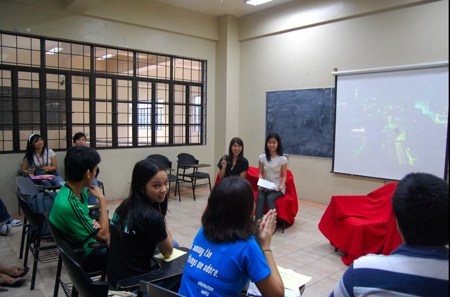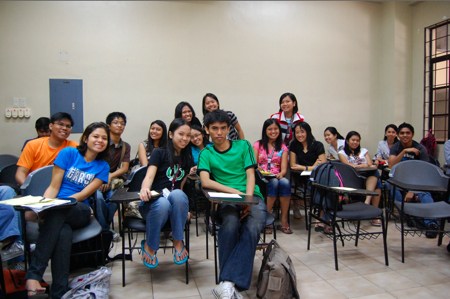I told myself that I should take a break from blogging. Just when I thought the waters are calm, Mike Abundo reveals that a hearing on a proposal by the Philippines’ National Telecommunications Commission that will require licenses for online content developers will be held today. The public hearing is set at 2pm Thursay GMT+8 (meeting got cancelled) at the NTC Executive Conference Room, 3rd Floor, NTC Building, BIR Road, East Triangle, Diliman, Quezon City, Metro Manila, Philippines.
The proposal is called the GUIDELINES ON THE PROVISION OF CONTENTS, INFORMATION, APPLICATIONS, AND ELECTRONIC GAMES. Content definition is not quite clear but I hope that can get threshed out. Is the memo applicable to commercial sites? And are personal sites exempted from this definition? Imagine paying 6,000 pesos annually for licenses when people create and post content online. Just the same, I asked my husband to read the memorandum so I don’t miss any fine print.
(edit -updated at 7:00 PM: My husband’s opinion below and read this Business Mirror article that explains the memorandum. Thanks Scrufus for the link. )
The definition of Content Developer is too vague and broad although it would appear to regulate content provided ““for compensation”. It could be dangerous as it could be used to stifle the blogosphere…
Bloggers should question this measure.
It’s not the money, although 6k is a lot. It’s using government policy to control and regulate content online. It’s a freedom of expression issue. It infringes on the constitutional right of free speech and expression.
Now, this reminds me of a reader who pointed out that those living in the US have what they call Bloggers’ Rights that is defended by the Electronic Frontier Foundation (EFF). I recall reading this site while I was still new in blogging. Is it high time we adopt similar guidelines for Bloggers’ Rights ? I don’t know if a non-profit organization is willing to take the cudgels.
Take a look at the recent controversy of student bloggers in Quezon City High School and the libel case slapped at Bambee de la Paz. Litigation is expensive if the case prospers.
None of these cases should stop us from blogging. Freedom of speech is the foundation of our constitutional rights and our laws need to be updated to include current trends in the internet.
In the Bloggers’ Rights site, they released a Legal Guide for Bloggers which I believe can be adapted to our country’s laws. Basically, it would be nice to have:
1. a basic roadmap to the legal issues you may confront as a blogger, to let you know you have rights, and to encourage you to blog freely with the knowledge that your legitimate speech is protected.
2. a Student Bloggers FAQ where it addresses legal issues arising from student blogging. It focuses on blogging by high school students, but also contains information for college students.
3. a Bloggers’ FAQ on Election Law addresses the legal issues you may face blogging about political campaigns.
4. The Bloggers’ FAQ on Labor Law that addresses legal issues with workplace blogging, including union organizing, protections for political blogging away from the workplace, and whistle blowing.
5 .The Bloggers’ FAQ on Intellectual Property that addresses issues that arise when you publish material created by others on your blog.
6. The Bloggers’ FAQ on Online Defamation Law that provides an overview of defamation (libel) law, including a discussion of the constitutional and statutory privileges that may protect you.
Electronic Frontier Foundation (EFF) encourages other countries to feel inspired with their work and do research. I believe they have provided us with some basic framework.
Any takers?
What is a Blog?
A Comm III (Speech and Communications) class in UP Diliman invited me as part of their interview exercise at the ungodly hour of 7:00 AM. The interview centered about blogging and new media. Naturally, I thought of taking photos of the interviewers and the audience.


Thank you Comm III class for making me part of this exercise.
Now for those who don’t understand what a blog is, I found this video that explains what a blog is in plain English. Watch it.
I think this proposal is a joke and a money making scheme. And I wonder how would they implement this with million of content providers out there. This would only elicit more anonymity online which isn’t good. They should focus more on other more important issues.
A blogger’s right wouldn’t be a bad idea at this time if those things ever happen.
Ferdzs last blog post..Camiguin: A slice of life at Mantigue Island
Good to know that there is a public hearing so content definition is more specific. It is so vague. Are bloggers even part of that?
Five million Filipino Friendsters, three million Filipino Multipliers, two hundred fifty thousand Filipino Facebookers, and seventy-one thousand Filipino Plurkers.
That’s a lot of people to police.
Mike Abundos last blog post..Philippines to Require License to Post Content
that’s why we have to educate them that content providers encompass a wider definition.
noemi, this is a very pressing issue. thanks for bringing this up. as a longtime blogger, it concerns and alarms me. i agree that there should be sort of a code of ethics among bloggers to make us responsible for the content we put out there but to make us pay? to regulate our online activities? who will monitor? how? who’s going to define which content is acceptable and not? will each and every blog be subjected to clearance? how on earth can that be possible?
i think there are more pressing matters that need addressing like monitoring online pornography and sexual offenders. yun muna ang atupagin sana nila.
lagalogs last blog post..lagalog says thanks: 1,139 posts/5 years/60 months/240 weeks/1,825 days/4 cameras/many friends and acquintances later
basically our laws need to be updated on latest trend in the internet including but not limited to blogs, online porn etc. We just have the e-commerce act so far.
The guide is not a law. it is for bloggers so they know their rights.
i agree with you that our laws are very much behind the times like how to deal with cybercrimes.
guidelines are fine. we ought to know our rights naman and at the same time, our responsibilities.
i agree with ferdz na baka moneymaking scheme na naman ito. oh well…
lagalogs last blog post..lagalog says thanks: 1,139 posts/5 years/60 months/240 weeks/1,825 days/4 cameras/many friends and acquintances later
I actually think the proposal is good for the “providers” that the circular is pertaining to, i.e. those that sell content (rintones, wallpapers), games, applications, etc. and goes through telcos for processing of payment. It seeks to make the “providers” earn more than the telco.
The Business Mirror article actually explains the circular better. The definition of contents developer is being taken out of context.
still the memorandum is vague. To make it clear, it should specify…exemption: blogs, social networking sites
Pingback: A License for Online Content Developers, Obama and GMA | Filipino Voices
Scrufus, the bureaucracy is a juggernaut that we need not provide the wheels for. Any new law no matter how vaguely related to the distribution of content could be used against freedom of speech. Everyone’s worried for the right reason… precisely because it is broad and vague.
My husband thinks the definition is vague. I heard the public hearing was cancelled. My husband recommends that we look into this seriously. Attend the next public hearing, perhaps?
Our law should be more specific.. They should understand that a single word would mean a lot. They should also publish the outcome of the public hearing. so not to have doubts among us bloggers.
Dexter | Tech At Hand Dot Nets last blog post..Proposal to Require License to Filipinos Before Posting Content
Bloggers need to attend the next hearing just so clarification is given to the definition. Today’s hearing was cancelled.
Yes, this is a nice idea. We should also include the issue on Bloggers Taxation. The Government shoudl know that bloggers also pay their taxes and should be accorded the same privileges as other regular taxpayers.
OT: si angel cuala ng fatherblogger(dot)com ay nahingi ng konting tulong financial sa inyo sa kadahilanan na ang butihing asawa niya e nadiagnose ng dengue. nakaconfine po ang asawa niya at nangangailangan ng 10k para sa blood transfusion. kung gusto niyo pong tumulong e makikibasa na lang po sa blog http://dine.racoma.com.ph/good-deeds/help-needed-by-father-blogger-blood-transfusion-urgently-needed-for-his-wife-diagnosed-with-dengue-fever/ maraming salamat po.
itots last blog post..BarackBerry | Sectera Edge, President Obama’s New SmartPhone
This is ridiculous; how on earth are they going to enforce this?? Also, if the wording is vague, yes they can fine more people, but more people would be able to argue that they don’t fit the definition. Be careful with this, it sounds like a case of corrupt lawmakers to me!
tnx po mam noemi! kakagising ko lang kaya now lang nakareply. malaking tulong po kay angel yun nagawa niyo about his problem. sa totoo lang po di ko siya kilala personally pero malapit lang siya samin kasi pareho kami taga batangas. he texted me yesterday and the least i can do to help him is to coordinate with our fellow bloggers. thanks po uli and godbless!
itots last blog post..BarackBerry | Sectera Edge, President Obama’s New SmartPhone
this news is alarming…why does the government have to do this? i mean, we’re living in a free world, right? are bloggers really getting that influential on the outcome of things today? this is the right time to find out.
i’d like to react more but it’s not until everything’s clear shall i voice out my further concerns…
edelweizas last blog post..Eye Contact Matters | How to Establish Eye Contact During Conversations
You want to see blogger influence? The Korean government claims this guy’s posts cost them $2.2 billion.
Mike Abundos last blog post..Korean Financial Blogger Detained
Great post! i’ve been a lurker for a long time and this is my first time to comment. I really think bloggers should be more involved in defining their rights. We have yet another libel case filed against a blogger — this time by a government official (http://newsinfo.inquirer.net/inquirerheadlines/metro/view/20100121-248693/Blogger-faces-libel-charge-for-item-on-relief-goods). Blogging is such a powerful tool both for communicating relevant information, but having the proper guidelines should help us keep these libel cases at bay.
Thank you for this article. Knowing our rights is only the beginning.